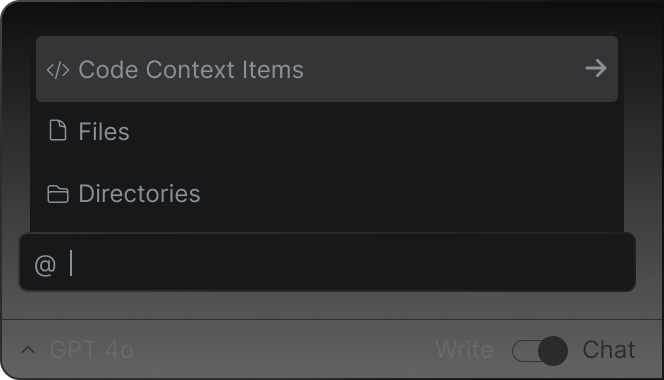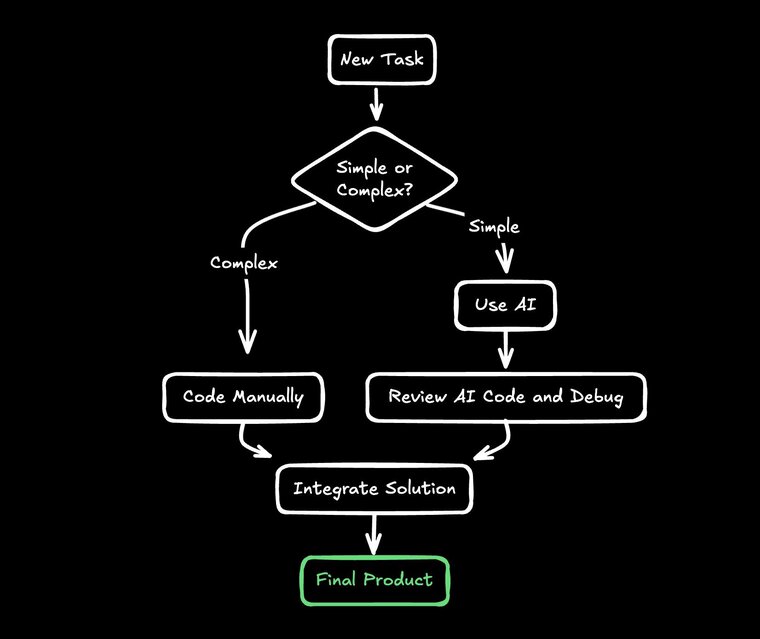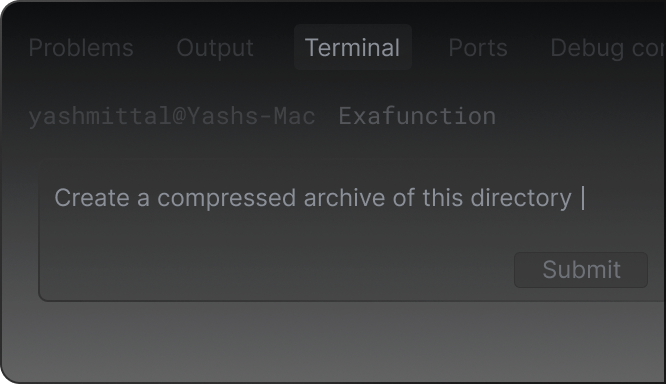AI code editors went from "neat toy" to "holy shit this actually works" sometime in early 2024. Now we've got two heavy hitters trying to eat your wallet: Cursor and Windsurf. Both want to be your coding buddy, both cost more than your Netflix subscription, and both will save your ass at 3am when that API endpoint breaks in production.
Cursor is VS Code on steroids. It's literally a VS Code fork with Claude 4 and GPT-4 plugged in. You still write code like a human, but now you can highlight some garbage code and tell it "fix this shit" in plain English. The @ symbol system lets you feed it context - like "@file1.py @database.sql help me debug this connection error." It works, but you have to babysit it.
Windsurf is what happens when you give an AI cocaine. Instead of you telling it what to do, it tries to read your mind. Type "add user authentication" and it'll create components, set up routing, configure state management, and probably suggest three different database schemas. Sometimes this is magical. Sometimes it rebuilds your entire app because you wanted to change a button color.

The Current Shitshow: September 2025 Updates
Windsurf dropped their Wave 4 update in March, which actually made it usable for real projects instead of just demos. They fixed the memory leaks, stopped crashing on large files, and added proper Git integration that doesn't randomly commit your .env files. Pro tip: if you're still on Wave 3, just fucking upgrade already - it has a nasty habit of corrupting your workspace settings when you switch between projects.
Cursor had their pricing meltdown in September. Their "unlimited" plan turned out to be pretty fucking limited. Now they charge per token like everyone else, which means that $20/month plan costs $67/month if you actually use it. Classic bait-and-switch.
Pick Your Poison: Control Freak vs Lazy Bastard
Cursor is for control freaks who want to know exactly what the AI is thinking. You manually feed it files with @, specify exactly what context matters, and review every suggestion. It's more work upfront but fewer surprises. Perfect if you're debugging production issues at 3am and can't afford the AI going rogue.
Windsurf is for lazy bastards who want the AI to just figure it out. Point it at a problem and it'll autonomously plan, code, test, and deploy. When it works, you feel like a god. When it doesn't, it usually fails spectacularly - like generating 47 components for a simple form, or deciding your React app needs a blockchain integration.
Last week I asked Windsurf to add some error handling to our Stripe thing. Holy shit, it went nuts - generated like 15 files including custom error classes, Winston logging, Sentry monitoring, and I think a health check endpoint? I just wanted a try/catch around the payment call.
Real-World Performance: The Shit That Actually Matters
I've been using both on everything from React side projects to Python APIs that process GB-sized datasets. Here's what actually happened:
Memory Usage: Cursor sits around 500MB most of the time, spikes to 2GB when it's thinking hard. Windsurf starts at 800MB and just keeps climbing - I've seen it hit 4GB indexing our monorepo. Both turn your laptop into a space heater. Fun fact: Cursor v0.39.4 has a memory leak - restart it every 2 hours or it'll gradually eat all your RAM like Chrome with 200 tabs.
Response Times: Cursor usually responds in 3-8 seconds, sometimes longer during peak hours. Windsurf can take forever during US business hours - sometimes 30+ seconds for simple completions. Both timeout occasionally when processing large context windows.
Error Recovery: Cursor fails gracefully - when confused, it asks for clarification. Windsurf gets stuck in loops, confidently generates broken code, or hallucinates APIs that don't exist. Last week it kept trying to import React.Hooks.UseState (not a real thing) for 20 minutes straight. Had to kill the entire conversation and start over.
Both are good enough to ship code with, but you still need human eyes on everything important. Neither replaces understanding your codebase, they just make the tedious parts faster.
Links for the curious:
- Cursor documentation - Where dreams of cheap AI go to die
- Cursor GitHub repository - What it actually does beyond autocomplete
- Cursor documentation - Official user guide and setup
- Cursor community forum - Recent updates and fixes
- Windsurf main site - The marketing promises
- Windsurf editor details - Technical specs that matter
- Windsurf Cascade agent - How the autonomous coding works
- Windsurf brand guidelines - Official assets and branding
- GitHub Copilot comparison - Microsoft's offering that's somehow cheaper
- Cody AI by Sourcegraph - Free AI assistant for VS Code
- Builder.io Cursor tips - Advanced workflows from real users
- Builder.io Windsurf vs Cursor analysis - Third-party technical comparison
- Dev.to AI IDE discussions - Real developer experiences, not marketing bullshit



